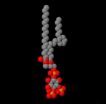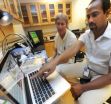(Press-News.org) CORVALLIS, Ore. – A new study suggests that nicotinamide, more commonly known as vitamin B3, may be able to combat some of the antibiotic-resistance staph infections that are increasingly common around the world, have killed thousands and can pose a significant threat to public health.
The research found that high doses of this vitamin increased by 1,000 times the ability of immune cells to kill staph bacteria. The work was done both in laboratory animals and with human blood.
The findings were published today in the Journal of Clinical Investigation by researchers from Cedars-Sinai Medical Center, the Linus Pauling Institute at Oregon State University, UCLA, and other institutions. The research was supported by several grants from the National Institutes of Health.
The work may offer a new avenue of attack against the growing number of "superbugs."
"This is potentially very significant, although we still need to do human studies," said Adrian Gombart, an associate professor in OSU's Linus Pauling Institute. "Antibiotics are wonder drugs, but they face increasing problems with resistance by various types of bacteria, especially Staphylococcus aureus.
"This could give us a new way to treat staph infections that can be deadly, and might be used in combination with current antibiotics," Gombart said. "It's a way to tap into the power of the innate immune system and stimulate it to provide a more powerful and natural immune response."
The scientists found that clinical doses of nicotinamide increased the numbers and efficacy of "neutrophils," a specialized type of white blood cell that can kill and eat harmful bacteria.
The nicotinamide was given at megadose, or therapeutic levels, far beyond what any normal diet would provide - but nonetheless in amounts that have already been used safely in humans, as a drug, for other medical purposes.
However, there is no evidence yet that normal diets or conventional-strength supplements of vitamin B3 would have any beneficial effect in preventing or treating bacterial infection, Gombart said, and people should not start taking high doses of the vitamin.
Gombart has been studying some of these issues for more than a decade, and discovered 10 years ago a human genetic mutation that makes people more vulnerable to bacterial infections. In continued work on the genetic underpinnings of this problem, researchers found that nicotinamide had the ability to "turn on" certain antimicrobial genes that greatly increase the ability of immune cells to kill bacteria.
One of the most common and serious of the staph infections, called methicillin-resistant S. aureus, or MRSA, was part of this study. It can cause serious and life-threatening illness, and researchers say the widespread use of antibiotics has helped increase the emergence and spread of this bacterial pathogen.
Dr. George Liu, an infectious disease expert at Cedars-Sinai and co-senior author on the study, said that "this vitamin is surprisingly effective in fighting off and protecting against one of today's most concerning public health threats." Such approaches could help reduce dependence on antibiotics, he said.
Co-first authors Pierre Kyme and Nils Thoennissen found that when used in human blood, clinical doses of vitamin B3 appeared to wipe out the staph infection in only a few hours.
Serious staph infections, such as those caused by MRSA, are increasingly prevalent in hospitals and nursing homes, but are also on the rise in prisons, the military, among athletes, and in other settings where many people come into close contact.
### END
Vitamin B3 may offer new tool in fight against 'superbugs'
2012-08-27
ELSE PRESS RELEASES FROM THIS DATE:
Fitting Kv potassium channels in the PIP2 puzzle
2012-08-27
A recent study in the Journal of General Physiology brings new insights to an area of ion channel regulation: whether voltage-gated potassium (Kv) channels can be regulated by physiological changes to PIP2.
Potassium channels, microscopic pores that allow potassium ions to cross cell membranes, are crucial to such diverse processes as conduction of the nerve impulse, regulation of the heartbeat, and the secretion of hormones such as insulin. PIP2, a minor phospholipid component of cell membranes, regulates the activity of various proteins in the cell membrane, and ...
Leg compressions may enhance stroke recovery
2012-08-27
AUGUSTA, Ga. – Successive, vigorous bouts of leg compressions following a stroke appear to trigger natural protective mechanisms that reduce damage, researchers report.
Compressing then releasing the leg for several five-minute intervals used in conjunction with the clot-buster tPA, essentially doubles efficacy, said Dr. David Hess, a stroke specialist who chairs the Medical College of Georgia Department of Neurology at Georgia Health Sciences University.
"This is potentially a very cheap, usable and safe – other than the temporary discomfort – therapy for stroke," ...
Renal denervation improves blood pressure and arterial stiffness
2012-08-27
Munich, Germany – August 27 2012: Renal denervation improves blood pressure and arterial stiffness in patients with therapy resistant hypertension, according to research presented at ESC Congress 2012 by Mr Klaas Franzen from the University Hospital of Schleswig-Holstein. The findings suggest that renal denervation regenerates blood vessels and could reduce cardiovascular events.
Malignant arterial hypertension was historically treated with surgical thoracolumbar splanchnicectomy, a type of sympathectomy treatment that was introduced in 1938. "A significant reduction ...
Breast milk promotes a different gut flora growth than infant formulas
2012-08-27
DURHAM, N.C. – The benefits of breast milk have long been appreciated, but now scientists at Duke University Medical Center have described a unique property that makes mother's milk better than infant formula in protecting infants from infections and illnesses.
The finding, published in the August issue of the journal Current Nutrition & Food Science, explains how breast milk, but not infant formula, fosters colonies of microbiotic flora in a newborn's intestinal tract that aid nutrient absorption and immune system development.
"This study is the first we know of that ...
Renal denervation achieves significant and sustained blood pressure reduction
2012-08-27
Munich, Germany – August 27 2012: Renal denervation leads to significant and sustained blood pressure reduction for up to 18 months in patients with treatment resistant hypertension, according to research presented at ESC Congress 2012. The new clinical data from the Symplicity HTN-2 randomized clinical trial were presented by principal investigator Dr Murray Esler at the scientific session, associate director of the Baker IDI Heart and Diabetes Institute of Melbourne, Australia and by Prof Böhm for the ESC Press Conference.
Treatment resistant hypertension is blood pressure ...
Renal sympathetic denervation improves physical and mental health in resistant hypertension
2012-08-27
Munich, Germany – August 26 2012: Renal sympathetic denervation improves anxiety, depression, quality of life and stress in patients with resistant hypertension, according to research presented at ESC Congress 2012 by Dr Denise Fischer from Saarland University Hospital.
Arterial hypertension is often associated with several psychological comorbidities, such as anxiety and panic disorders, leading to impaired quality of life. Catheter-based renal sympathetic denervation (RDN) is a novel treatment option for patients with resistant hypertension and has been shown to reduce ...
Renal denervation treats resistant hypertension in real world patient populations
2012-08-27
Munich, Germany – August 27 2012: Renal denervation successfully treats patients with resistant hypertension in real world patient populations, according to a study presented at ESC Congress 2012. The findings were presented by Dr Darren Mylotte from France.
Transcatheter renal denervation represents a novel therapy for treating patients with treatment resistant hypertension, a condition which greatly increases the risk of myocardial infarction and stroke.
"The Symplicity Hypertension I and II studies have suggested that this procedure significantly lowers blood pressure ...
Cancer vaccine Special Focus series published in Human Vaccines & Immunotherapeutics
2012-08-27
August 27, 2012 -- In one of the most comprehensive peer-reviewed discussions on cancer vaccines and immunotherapeutics, a Special Focus in the journal Human Vaccines & Immunotherapeutics provides a critical view on cancer vaccines and a discussion on best approaches for the future. From firsthand accounts of principal investigators involved in numerous failed cancer vaccine programs, including Oncophage® and MVAX®, to commentary from world experts in cancer vaccine development, authors in the Special Focus recount the mistakes of the past and provide an critical lens ...
Renal denervation gives better outcomes than drugs in advanced heart failure
2012-08-27
Munich, Germany – August 27 2012: Renal denervation leads to better outcomes than standard drug treatment in patients with advanced heart failure, according to research presented at ESC Congress 2012. The results of the Olomouc I pilot study were presented by Dr Miloš Táborský from the University Hospital Olomouc.
Renal denervation does not involve any pharmacological treatment. It is a multiple application of radiofrequency energy using a thin catheter via the femoral artery and a long-term "denervation" of the sympathetic nerves around the renal arteries. "This is done ...
Precise and persistent cell sabotage
2012-08-27
Some of the body's own genetic material, known as small interfering RNA (siRNA), can be packaged then unleashed as a precise and persistent technology to guide cell behavior, researchers at Case Western Reserve University report in the current issue of the journal, Acta Biomaterialia.
The research group, led by Eben Alsberg, associate professor in the departments of Biomedical Engineering and Orthopedic Surgery, have been pursuing experiments that seek to catalyze stem cells to grow into, for example, bone and cartilage cells, instead of fat, smooth muscle and other cell ...

